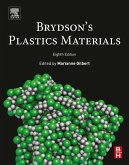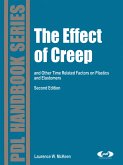It has been reorganized from a chemistry point of view. Plastics of similar polymer types are grouped into nine chapters. Each of these chapters includes an introduction with a brief explanation of the chemistry of the polymers used in the plastics.
An extensive first chapter has been added as an introduction that summarizes the chemistry of making polymers, the formulation of plastics, testing and test methods, and plastic selection.
Most plastic products and parts are expected to be used in environments other than room temperature and standard humidity conditions. Chapters 2-10 are a databank that serves as an evaluation of plastics as they are exposed to varying operating conditions at different temperatures, humidity, and other factors. Over 900 graphs for more than 45 generic families of plastics are contained in these chapters.
Chapter 11 contains extensive mechanical and electrical data in tabular form. The tables contain data on several thousand plastics. Similarly, Chapter 12 contains thermal data on several thousand plastics.
Data from the first edition have only been removed if those products were discontinued, and many products were. Product names and manufacturers have been updated.
- Detailed introductions of plastics properties, testing procedures, and principles of plastics design
- The only "databook" available on the effects of temperature and humidity conditions on plastics and elastomers
- More than 1,000 graphs and tables allow for easy comparison between products
- Covers more than 70 types of plastics, and summarizes the chemistry of each type
Dieser Download kann aus rechtlichen Gründen nur mit Rechnungsadresse in A, B, BG, CY, CZ, D, DK, EW, E, FIN, F, GR, HR, H, IRL, I, LT, L, LR, M, NL, PL, P, R, S, SLO, SK ausgeliefert werden.









